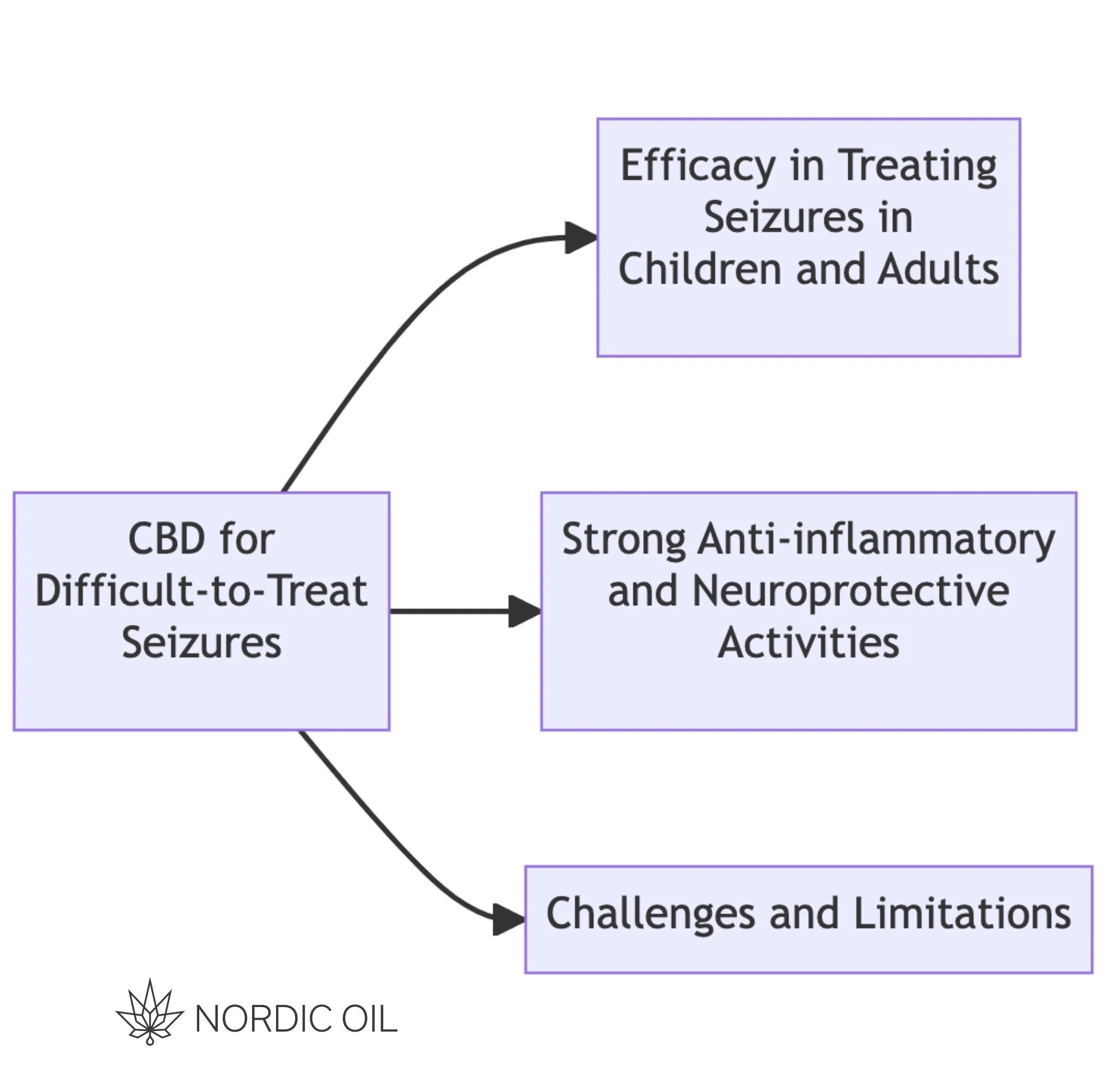Epilepsy is a common neurological disorder that affects millions of people worldwide. Despite the availability of various antiseizure medications, about 30% of patients do not respond to these treatments. This has led researchers to explore alternative therapeutic options, including cannabinoids derived from the cannabis plant.
The study titled "Therapeutic and clinical foundations of cannabidiol therapy for difficult-to-treat seizures in children and adults with refractory epilepsies" is a human study conducted by F.R. Ames and S. Cridland. The research was carried out at the institution ScienceDirect.
Main Findings
- Cannabidiol (CBD) has shown efficacy in treating seizures in both children and adults.
- CBD has strong anti-inflammatory and neuroprotective activities.
- Despite its potential, the widespread use of CBD is hampered by limited understanding of its pharmacodynamics, complex pharmacokinetics, and risk of adverse effects.
Methodology
The researchers conducted a comprehensive review of the therapeutic approaches and clinical foundations of CBD. They focused on the clinical utility of CBD for the treatment of seizures associated with refractory and rare epilepsies. The study did not specify the duration of the research.
Data was collected from various sources, including experimental models and randomized clinical trials. The researchers analyzed the data to understand the antiseizure mechanisms of CBD in humans. The study did not provide specific details about the tools or materials used in the research.
Information about dosing was not explicitly provided in the study. However, it was mentioned that the US Food and Drug Administration approved the use of highly-purified CBD for severe seizures.
Potential Implications
The findings of this study could have significant implications for the treatment of epilepsy. CBD could serve as an effective alternative for patients who do not respond to traditional antiseizure medications. Furthermore, the anti-inflammatory and neuroprotective activities of CBD could potentially benefit patients with other neurological conditions.
Limitations
The study acknowledges several limitations. These include a limited understanding of the pharmacodynamics of CBD, a complex exposure-response relationship, limited information for seizure freedom with continued use, complex pharmacokinetics with drug interactions, risk of adverse effects, and lack of expert therapeutic guidelines.
Conclusion
The study concludes that CBD has shown promise as a safe and effective antiseizure medicine. However, further investigations are needed to resolve the scientific issues surrounding its use. This would help determine the unique role of CBD in the management of refractory epilepsy.

